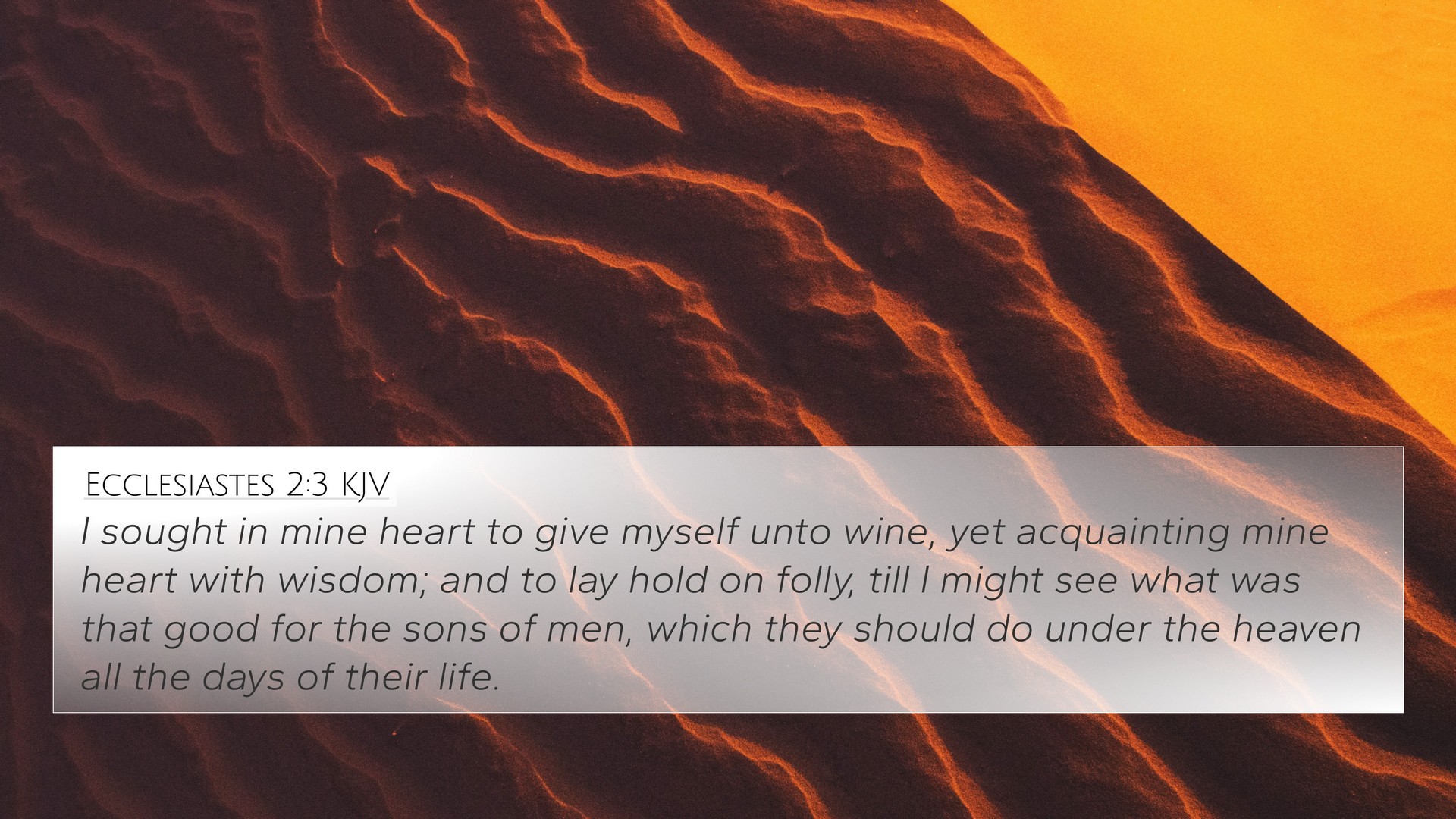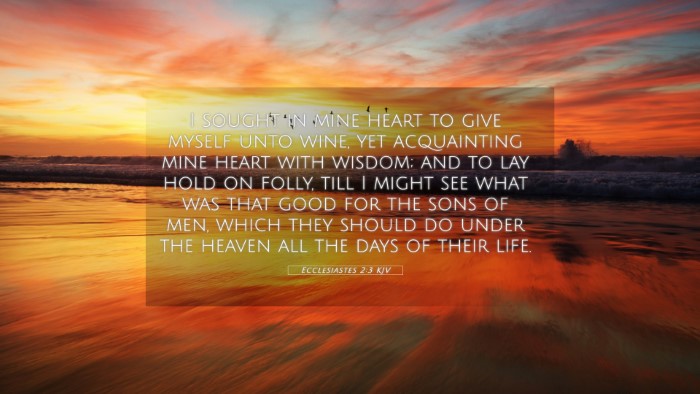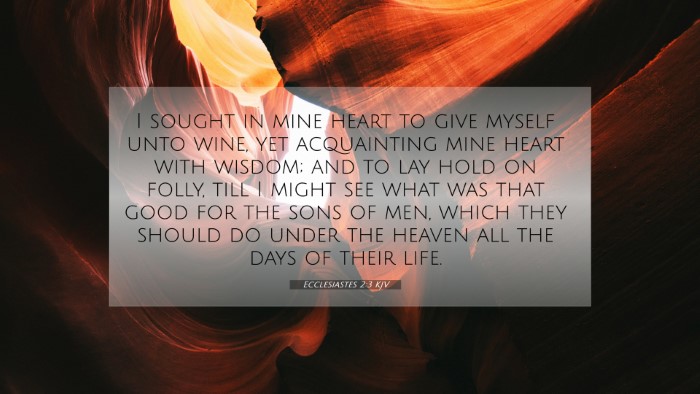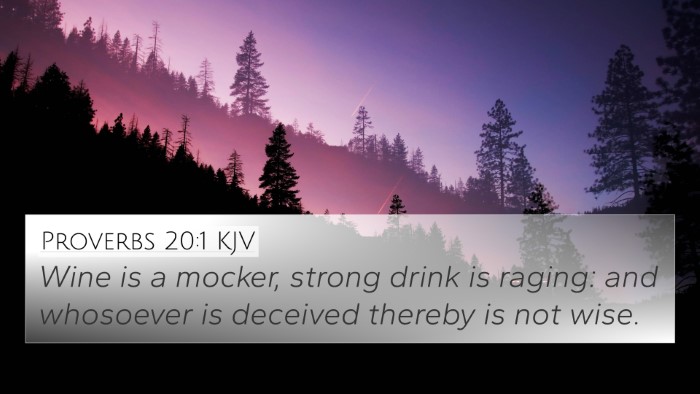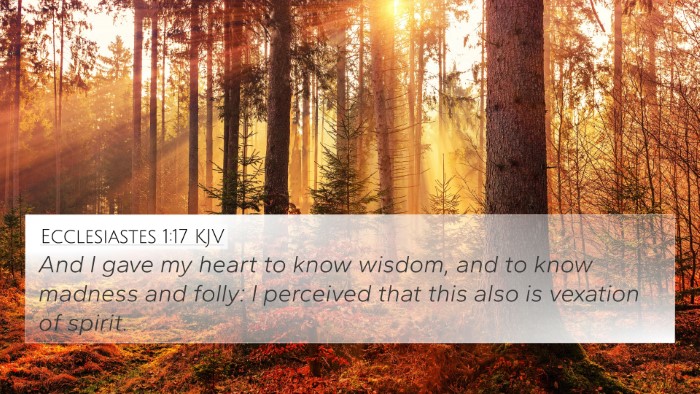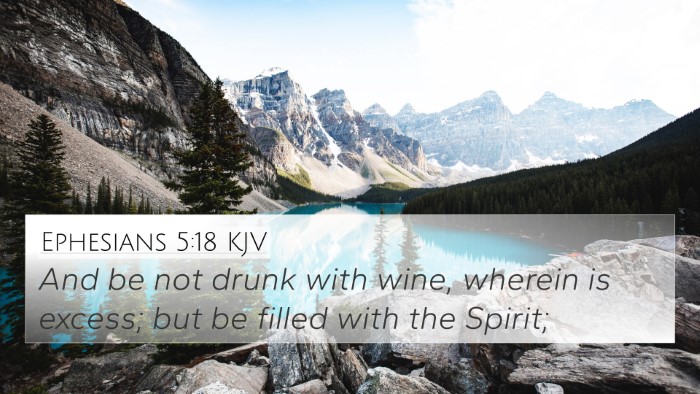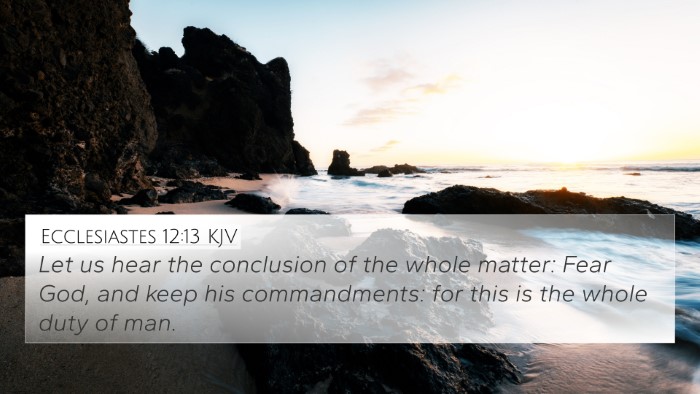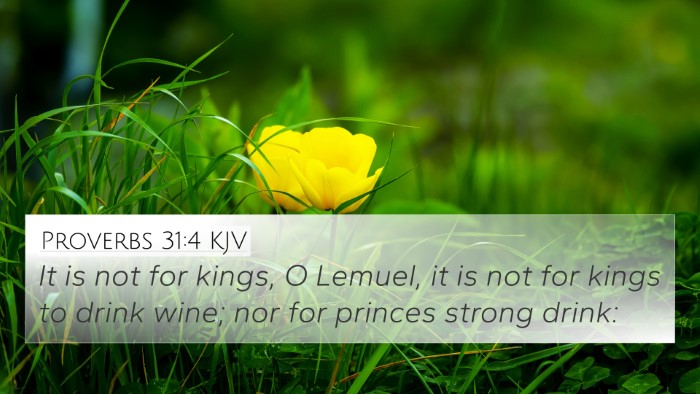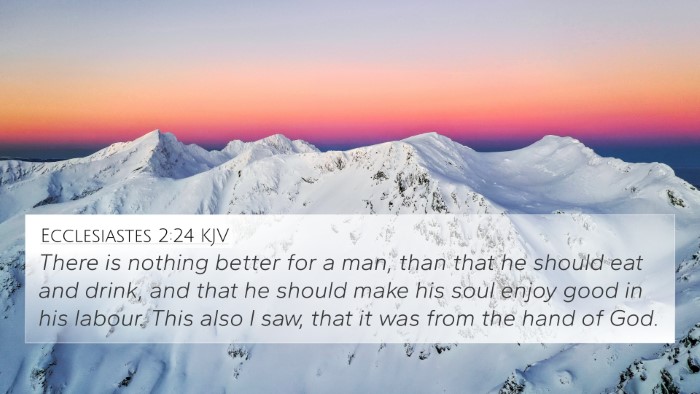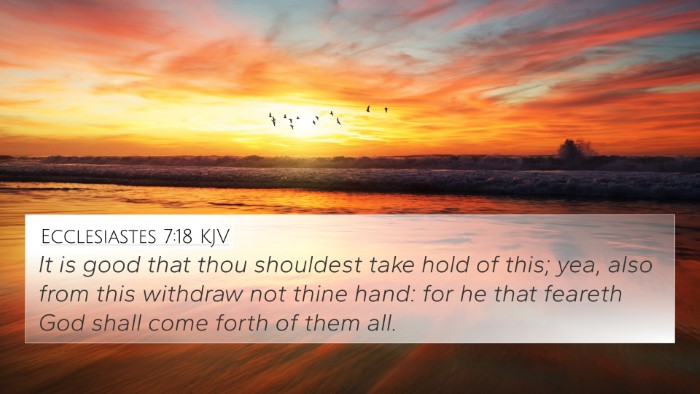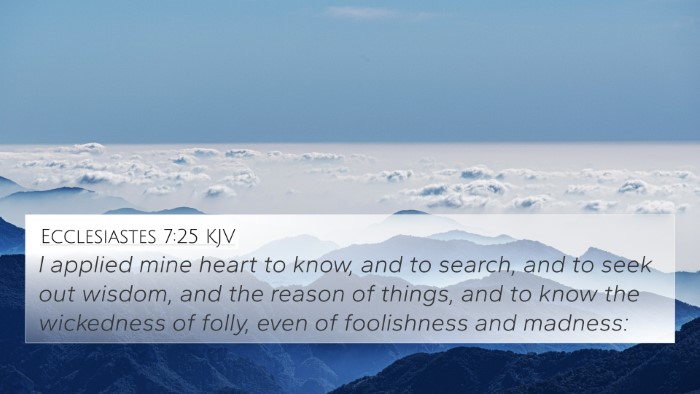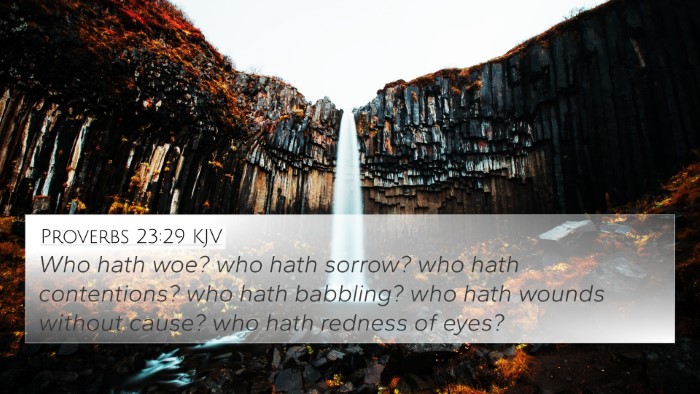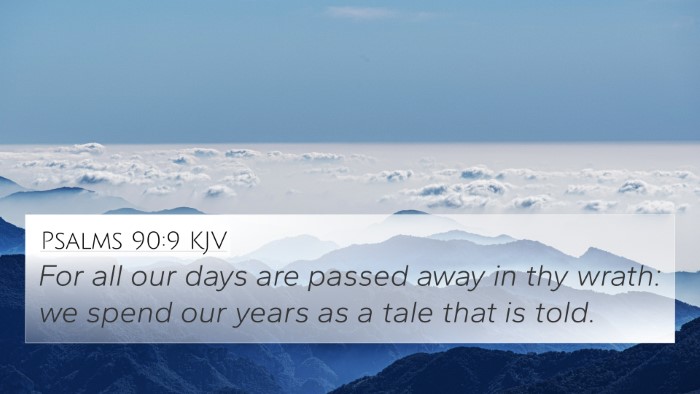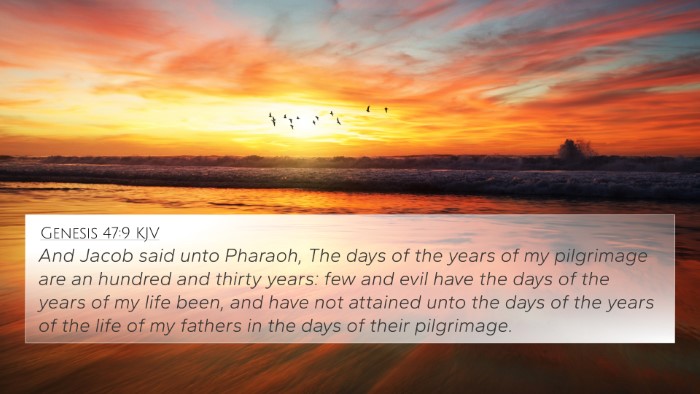Understanding Ecclesiastes 2:3
Ecclesiastes 2:3 states:
"I searched in my heart how to gratify my flesh with wine, while guiding my heart with wisdom; and how to lay hold on folly, till I might see what was good for the sons of men to do under heaven all the days of their lives."
Summary of Interpretations
This verse captures the essence of the author's search for meaning and enjoyment in life, particularly through the exploration of pleasure, wisdom, and folly. The Preacher, traditionally identified as Solomon, examines the pursuit of earthly pleasures while maintaining a framework of wisdom to guide his explorations.
Key Insights from Public Domain Commentaries
-
Matthew Henry:
Henry suggests that this verse illustrates the duality of human experience—balancing pleasure with wisdom. He believes that seeking pleasure without understanding its implications can lead to emptiness. The wisdom mentioned is not to eliminate enjoyment but to contextualize it, making it meaningful.
-
Albert Barnes:
Barnes emphasizes the careful deliberation in the Preacher's search for pleasure. He points out that the use of wine symbolizes the quest for joy and satisfaction. However, it urges the reader to realize that such pursuits must be anchored in wisdom to discern true fulfillment in life.
-
Adam Clarke:
Clarke's interpretation involves the idea of “laying hold on folly,” which he argues reflects the human tendency to explore both wise and foolish courses of action. He highlights that this verse is a profound reflection of the human soul's desire to experience all aspects of life, both joyful and mundane.
Bible Cross-References
Ecclesiastes 2:3 connects with several other scriptures that broaden the understanding of its themes:
- Proverbs 5:1-3: Advises maintaining wisdom while exploring pleasure.
- Ecclesiastes 3:13: Suggests finding enjoyment in one's labor as a gift from God.
- Philippians 4:5-7: Encourages a thoughtful approach to joy, examining peace in the context of life's pleasures.
- Romans 12:2: Discusses the importance of discerning God's will, aligning with the pursuit of true fulfillment.
- 1 Corinthians 10:31: Reminds believers to do all things for the glory of God, including enjoying life’s pleasures.
- Ecclesiastes 11:9: A call to rejoice in youth, while also being mindful of the consequences of one's actions.
- Proverbs 14:12: Warns that not all paths lead to life, complementing the theme of discernment present in Ecclesiastes 2:3.
Thematic Connections
The exploration of pleasure through the lens of wisdom is a recurring biblical theme. Ecclesiastes 2:3 highlights:
- The Pursuit of Happiness: The Preacher’s experiments are mirrored in the search for happiness found in other biblical texts.
- Wisdom vs. Folly: The constant battle between making wise choices versus succumbing to folly is a major biblical theme.
- Life Under the Sun: Many verses throughout Ecclesiastes echo the frustration and search for meaning in worldly pursuits.
Conclusion
Ecclesiastes 2:3 invites readers to reflect on their own pursuits of pleasure and the wisdom that guides those pursuits. It challenges believers to consider the broader implications of their experiences, balancing enjoyment with a deep understanding of life's purpose. Engaging with this scripture can lead to richer insights through cross-referencing related Bible verses, making connections that enhance our understanding of God’s plan.
Further Study Tools
To dive deeper into your study, consider utilizing tools for Bible cross-referencing such as:
- Bible Concordance: A helpful resource for locating and understanding specific terms, topics, or ideas.
- Bible Cross-Reference Guide: Enables deeper exploration of interconnected themes.
- Cross-Reference Bible Study: Methods involving comparative analysis of scriptures.
